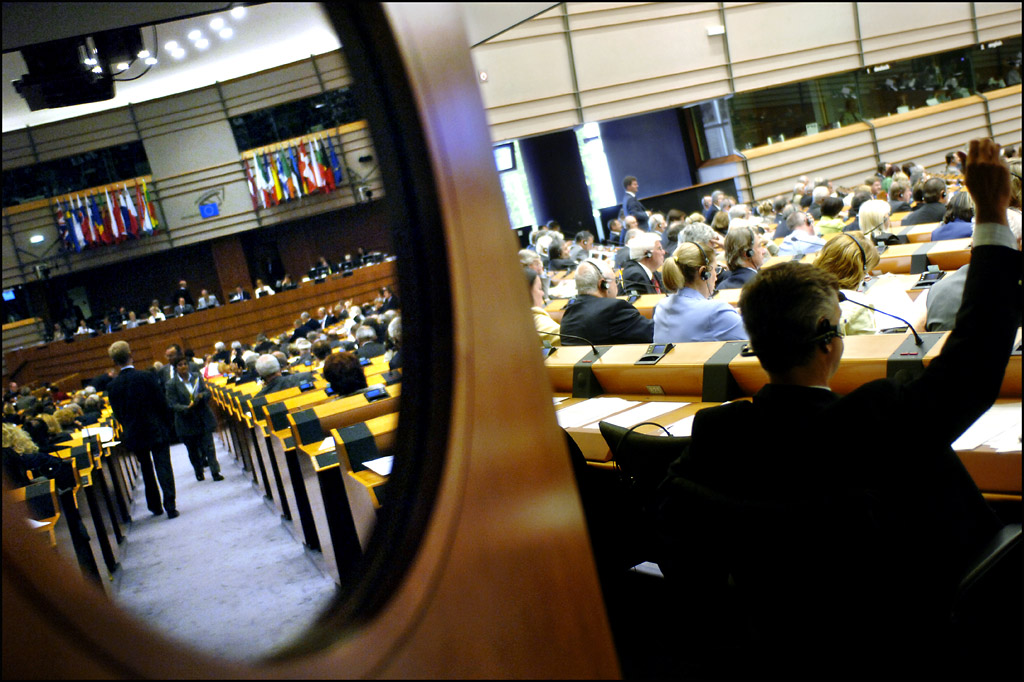Europeans go to the polls May 23-26 to elect a new European Parliament. Held every five years since 1979, the ninth direct election of Members of the European Parliament (MEPs) promises to be interesting.
Now that the Brexit deadline has been extended until October 31, the U.K. will be electing a full slate of MEPs. Euroskeptic-in-chief Nigel Farage, formerly head of the United Kingdom Independence Party, has announced his new Brexit Party will contest the election “to scare the hell out of U.K. MPs” contemplating a second referendum or dithering over a negotiated Brexit agreement with the EU.
Will “U.K. Remain” voters have a clear alternative to the party of Nigel Farage? However logical such an option may appear, nothing has yet emerged to suggest it will happen.
In February 2016, former Greek Finance Minister Yanis Varoufakis and Croatian philosopher Srećko Horvat launched first in Berlin, then in Rome, a Democracy in Europe Movement 2025 (DiEM25).
DiEM 25 wants to see a sovereign European Parliament bring full-fledged democracy to a “EU techno superstate ruling by edict.” It wants to remove the treaties that constrain EU democracy. DiEM25 proposes a citizens’ constituent assembly to draft an authentic European constitution.
Currently MEPs represent national parties that join with others to form parliamentary groups. DiEM25 rejects the weak coalitions that arise in parliament as insufficient to generate real change.
In the May elections, Diem25, which has some 60,000 individual adherents across Europe, wants to be the first true transnational party. Nonetheless it will work with friendly national parties to present candidates for election under the banner of European Spring.
While Varoufakis advances a left-wing critique of neoliberal Europe, he rejects the idea put forward by some left parties that limiting EU powers so as to restore national sovereignties is the way to supersede corporate-friendly ideology. Indeed he sees his movement offering a political, democratized Europe as the best way to get rid of neoliberal austerity, and, just as importantly, to combat the right-wing anti-migrant forces of reaction that are troubling national politics in various countries including Hungry, Italy, and France — and fragmenting Europe at the same time.
European parliamentary elections are nationally organized using various forms of proportional representation.
Seats are apportioned regressively to population, giving small states (Cyprus, Estonia, Luxembourg, Malta) six seats, and the largest state, Germany, 96 seats. As a result, Malta gets one seat to represent 70,000 voters while Germany has to make do with one seat for 843,000 voters.
Voter turnout for EU parliamentary elections has been weak. Only 42.5 per cent of the 375 million eligible voters exercised their democratic franchise in 2014.
The two dominant parliamentary groups have their roots in conservative Christian Democratic parties and socialist party formations. The two groups have successfully worked together in the past in what has been called a Grand Coalition. Increasingly, new parliamentary groups have emerged as the old conservative and socialist parties weaken their hold on the European electorates.
While much has been made of new extreme right-wing and nationalist parties that have elected vocal Eurodeputies, the 731-member parliament also has important left-of-centre groups.
The European United Left-Nordic Green Left (anti-capitalist and Communist) and the Greens-European Free Alliance (Greens plus left regional nationalist) each have over 50 MEPs.
The European Greens are an umbrella group with an impressive program. While the Canadian Green Party is still talking about debt reduction as an approach to fiscal questions, the European Green Party wants to see a financial transactions tax and binding carbon budgets that include restoring natural carbon sinks.
Green policies aim at limiting meat consumption, removing fossil fuel-powered cars by 2030, and funding rail transport.
On questions of poverty, social rights, health, inclusion and exclusion, work, education, research and culture, youth, and the elderly, Europeans Greens provide ideas that NDP supporters would find appropriate.
Their struggle against the powerful corporate lobby groups that have had so much influence in Brussels over the European Commission and the EU Secretariat-General is what garners attention for the anti-capitalist and Green groups.
The single-market EU has exercised domination; the democratic EU has suffered as a result.
The left opposition DiEM25, the anti-capitalists, and the European Greens underscore the idea that the EU is a union for peace, and want it to become a full supranational democracy.
Duncan Cameron is president emeritus of rabble.ca and writes a weekly column on politics and current affairs.
Photo: European Parliament/Flickr
Help make rabble sustainable. Please consider supporting our work with a monthly donation. Support rabble.ca today for as little as $1 per month!




